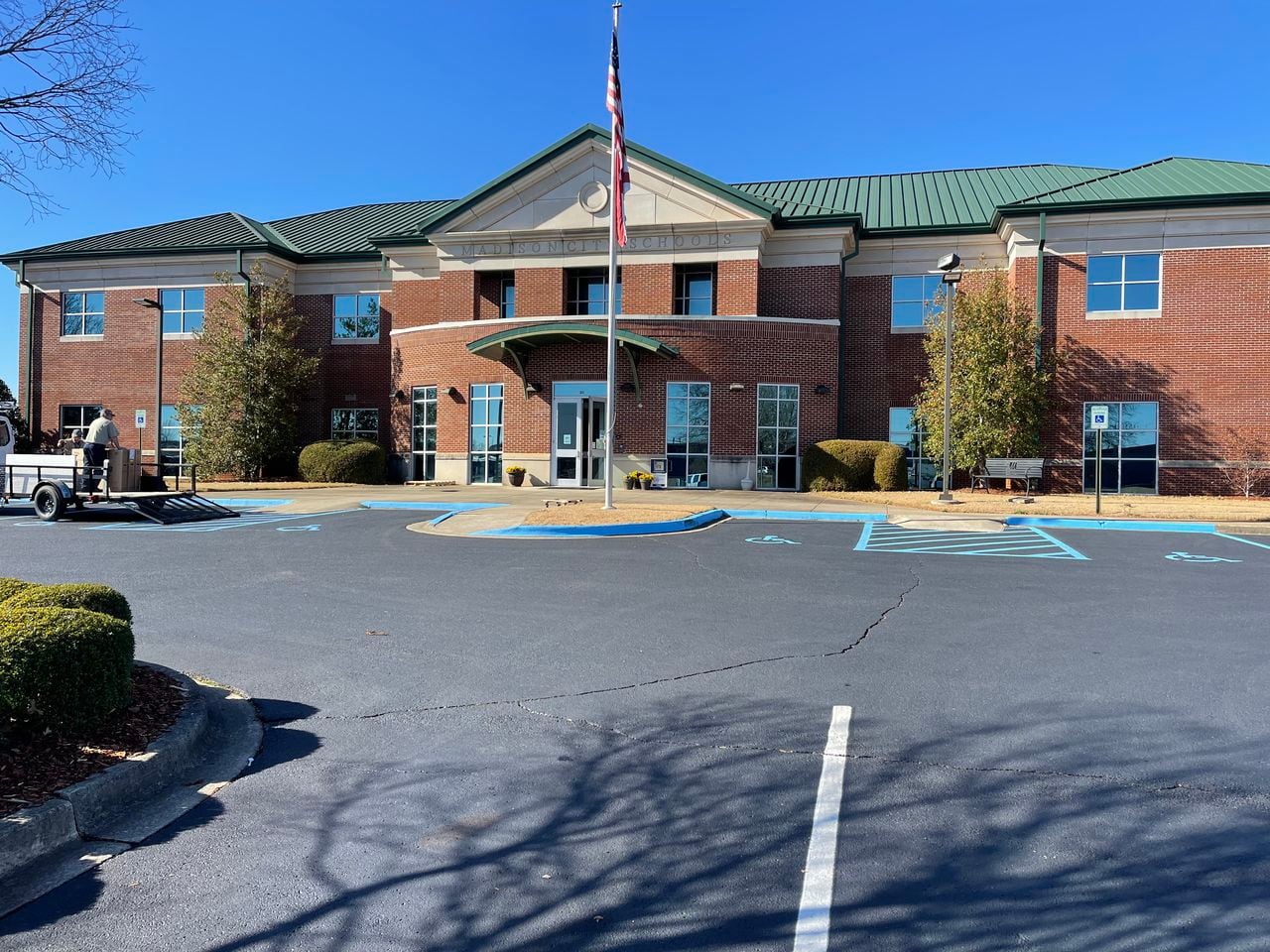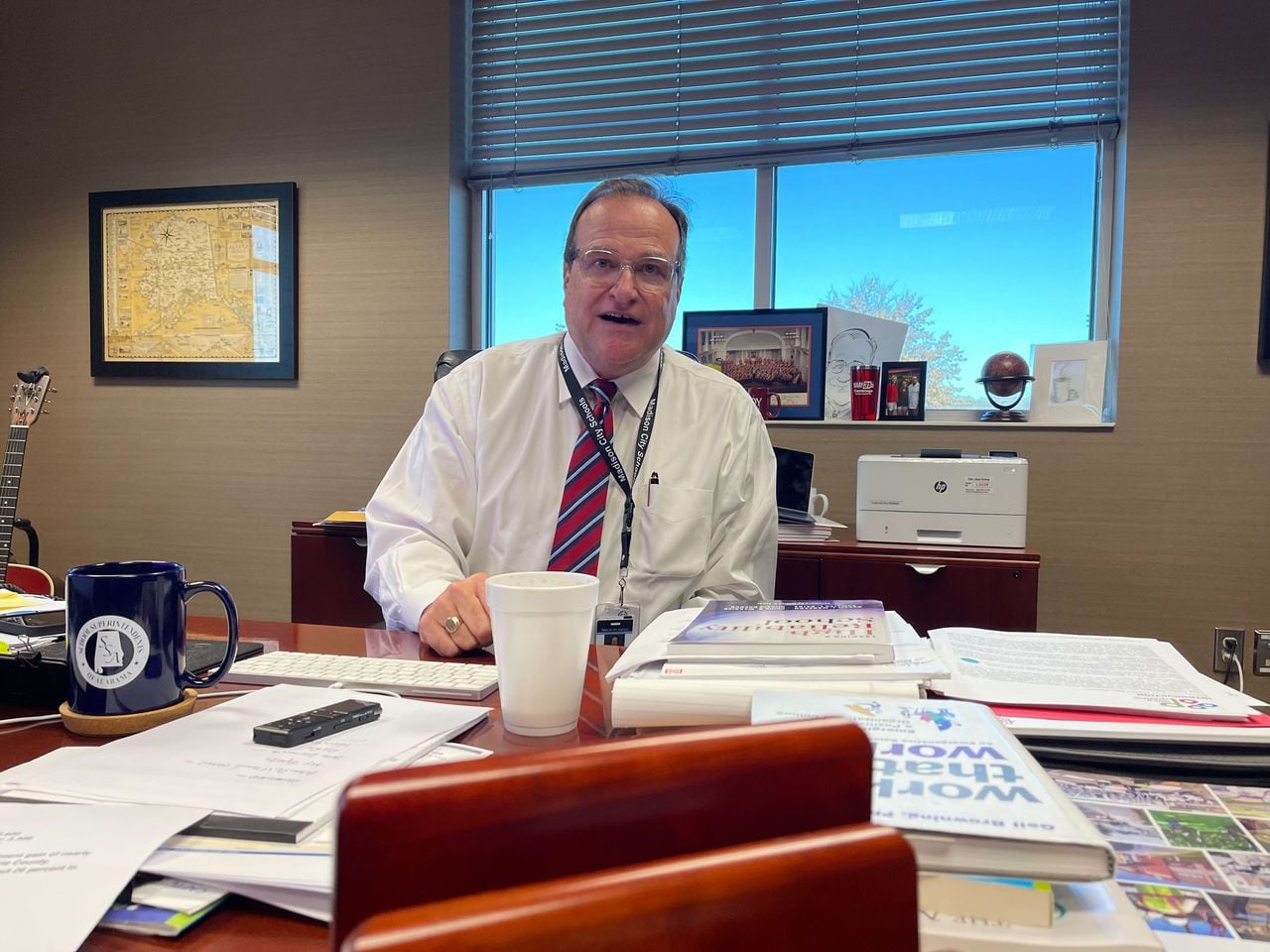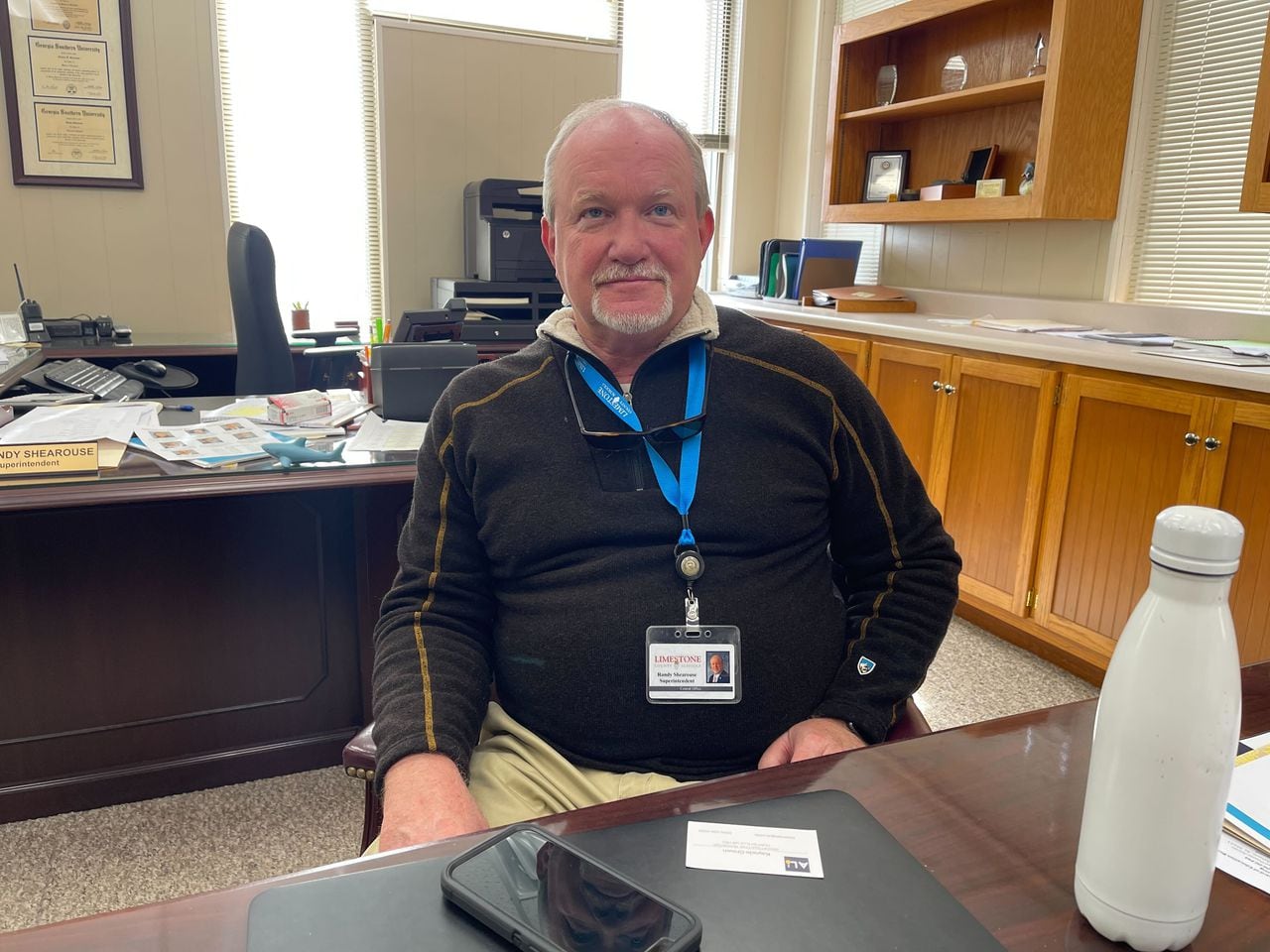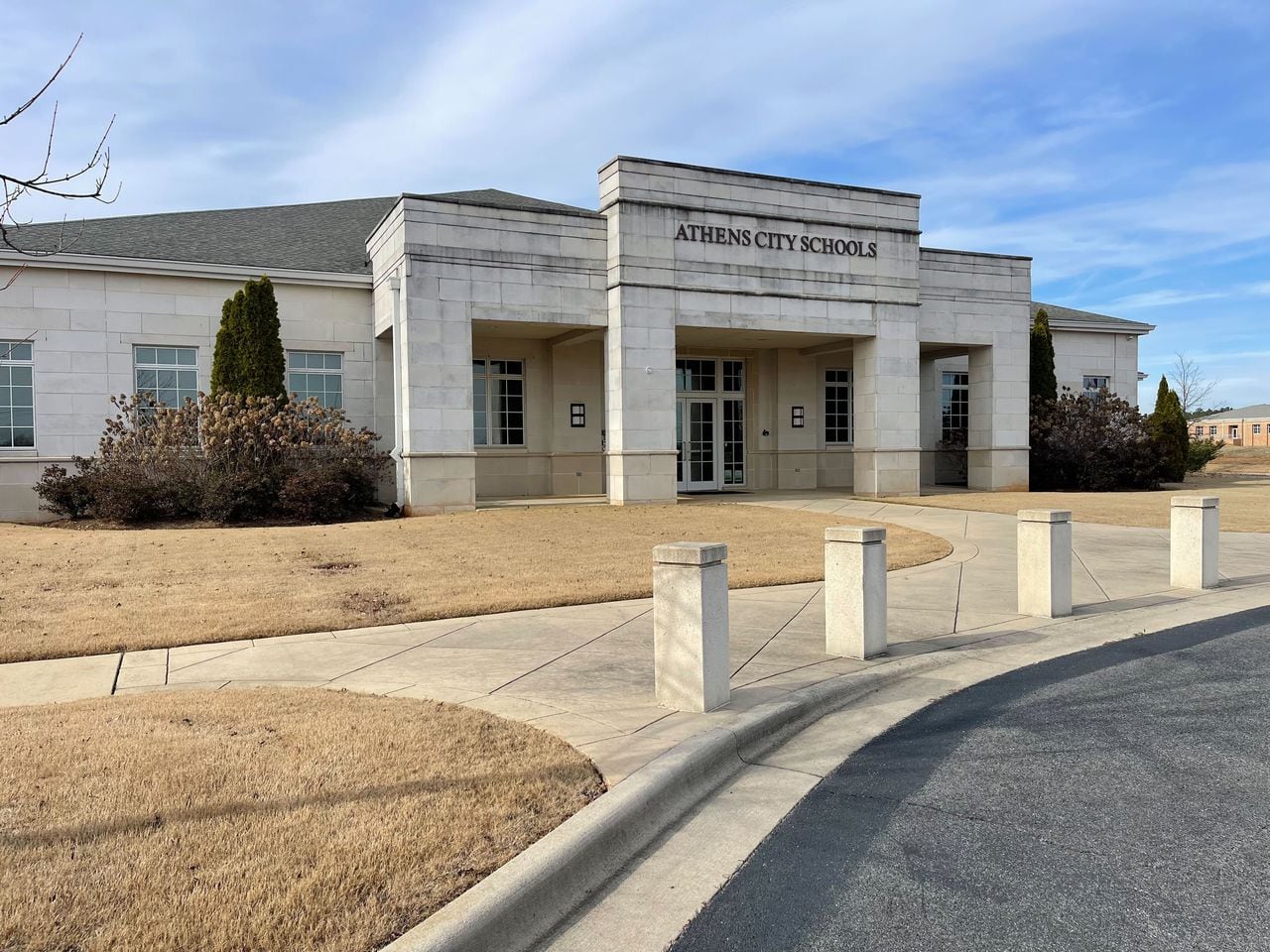Resentments lead to school tax failure in fast-growing county: ‘I pay enough’
Tommy Gooch could not hide his glee that voters did not approve a property tax renewal to pay for schools in Limestone County.
“I’m kind of glad that it failed,” he told AL.com with a chuckle, later adding, “I pay enough. I pay enough taxes on my property. I don’t need to pay no more.”
Gooch said that he called people and made social media posts, that he spoke to people on work sites as he built houses, that he urged anyone he could reach to reject the vote.
“I voted no on everything. When I walked in, I wasn’t even going to read it,” he said.
He was far from alone.
The property tax to fund education in Limestone County comes up for renewal every 20 years. On Dec. 5, the residents of fast-growing Limestone County overwhelmingly rejected it.
Athens City Schools and Limestone County Schools are the main districts that benefit from the fund. But parts of three neighboring cities, Madison, Decatur, and Huntsville, stretch into Limestone County. Their school districts also get part of the Limestone education tax fund.
Athens City Schools central office.Kayode Crown
And for people like Gooch, that’s a problem.
“They’re trying to renew — I’m assuming that’s the word — renew something that has already been going on, for our tax money to be supporting Madison City,” said Gooch, “and other places that build school systems in our county, parts that were annexed.”
“Our money’s supposed to be staying here in our county. I wish I had a way of stopping the annexation. I have no idea how to do it.”
Madison schools got $1.7 million, while Limestone County Schools received more than $7 million in the 2022-2023 financial year, their superintendents told AL.com.

Madison City Schools central office.Kayode Crown
The superintendents of Decatur and Huntsville did not respond to requests for interviews for this article.
There were four measures on the ballot in December. Limestone County voters rejected two separate countywide public school taxes, both by about 60-40% margin. One is a 4.5 mill tax and the other is a 1 mill tax. A mill works out to $10 a year on a $100,000 home.
Voters also rejected the 3 mill public school tax renewal for parts of the county that do not include the city school systems. That failed by a 70-30% margin.
The 3 mill property tax for Athens passed. But the district will still experience revenue loss, said superintendent Beth Patton. In a statement emailed to AL.com, Patton said that this is because voters did not approve the two county-wide property taxes, part of which supported Athens City Schools.
“Some voters in Athens expressed that they believed that voting against the tax renewal would lower their property taxes. This is not the case,” she wrote.
“The Alabama Constitution requires that each school district receive a bare minimum of 10 mills of property tax for general school purposes, and if a school system is below that level, then special district taxes are automatically levied to get each school district to that minimum level.”
The districts receive portions of the Limestone education tax fund based on the number of Limestone county-based students attending their schools, said Ed Nichols, the Madison superintendent, in an interview with AL.com.
Madison City Schools saw the most significant growth in Limestone County, increasing the number of students there by 60% in the last five years. The city-wide school population grew by 20% in the same period. There are 3,300 students living in Limestone County and attending Madison City Schools, constituting just over a quarter of the system’s 12,600 students.
All Madison city schools earned an A in the 2023 Alabama schools report card.
Nichols is concerned about the Dec. 5 vote’s impact on the school district because the district uses the tax money to support various programs, including ongoing school renovations and expansion as the district population grows.

Madison City Schools Superintendent Ed Nichols.Kayode Crown
“That growth is going to really be a challenge to us without this stream of funding,” he said.
“We want to continue to be able to allow our students the electives that they want, not turn them away,” Nichols told AL.com. “So those are areas like career tech and fine arts, you’ve got to have the facility in place for them.”
Gooch, whose children attend Limestone County Schools, said he believes people in the annexed parts of the county should pay for whatever goes into their school districts.
“They annexed that property, that’s all on them,” he said. “They should have thought about that before they annexed. Those people that got annexed should have to pay the piper, not us. The people that are getting the benefit are the ones that should be paying.”
Another Limestone County resident and parent, John Witt, also opposes the annexations going on in the county and does not want to help the school districts in the annexed areas.
“The county is getting annexed out of existence,” he said. “You’ve got people that live out here in the country like us. We like living in the country and we don’t want to pay more taxes for the greater good of the annexed area.”
“So we’re out here expecting to pay for these schools that already have more money than we have,” he said. “I mean, I am voting against that because it’s going to go to other places; at least, that is the perception.”
“So my point is this: why should someone in this district, these districts, pay a school system just because it’s physically in the county? It’s not a county system.”
Before the Dec. 5 vote, which saw just a 3% voter turnout, Witt called people on the phone urging them to reject the measure.
“I made 30 or 40 calls. Then they would contact people, get on their social media, and send stuff out.”
“I said, ‘I’m not voting for it, and I advise you to not vote for it.’”
Jess Brown, retired Athens State University political science professor, said the low voter turnout creates questions.
“The baseline problem is probably voter apathy and voter ignorance,” Brown said. “Voter apathy in the sense that 97% of the registered voters either didn’t know enough or didn’t care enough to even go out. And of the 3% that did vote, we may have a situation where there was voter ignorance, that they just didn’t know what they were voting on.”
Brown said there is a growing trend of parent disenchantment with public schools.
Tuscaloosa County voters in February 2023 rejected property tax increases to fund education. Choctaw County voters, in 2022, did not renew theirs, potentially leaving a funding gap.
“What’s happened in the last 10 to 20 years is that the parents in the voting public of Alabama are having less and less confidence in the services provided by the public school systems,” he said.
“I hear anecdotally from a lot of people, including parents, that the sort of almost blind support, cheerleading support of public schools, that would have been very evident a generation ago, I am convinced the public schools just do not enjoy the level of public confidence that they did a generation ago. And this could be what you saw in this vote.”
Randy Shearouse, Limestone County Schools superintendent, said the district uses the $7 million from the property tax to hire extra teachers, which helps keep class sizes down and allows the county system to embark on new construction because other funding sources are restricted.

Limestone County Schools Superintendent Randy ShearouseKayode Crown
However, there is another chance to go back to Limestone County voters.
But Shearouse said that the school board has not decided whether to bring the vote up again before the October 2025 deadline for the renewal.
Shearouse explained that Alabama now mandates each county tax a minimum of 10 mills for education as part of the state’s funding formula.
“If you don’t pass it, the county commission still has to levy 10 mils for the school system,” he said.
Shearouse is disappointed at the vote’s result.
“I think eventually there could be a loss of money,” he said. “But I think it all goes back to — we want our citizens to support our school system and the good things we’re doing here. We think that is important.”
Gooch said he is committed to ensuring the vote fails again if the authorities put it back on the ballot.
“Because I will spend every dime I make to make sure it doesn’t pass because I just don’t believe in throwing good money at a dead horse,” Gooch told AL.com.
“It’s not going to pass,” he said.
